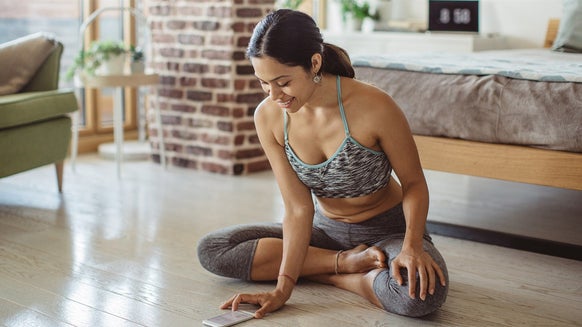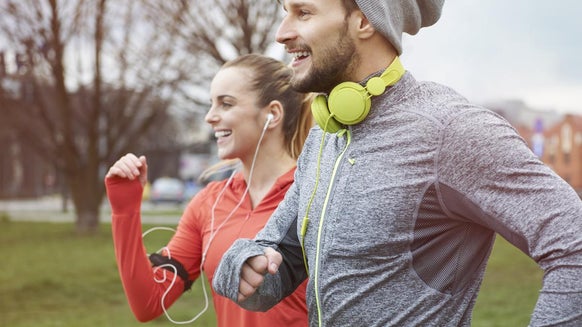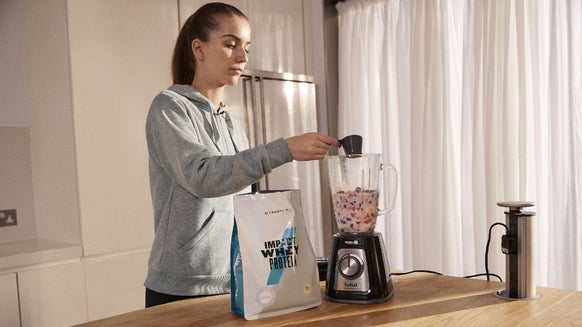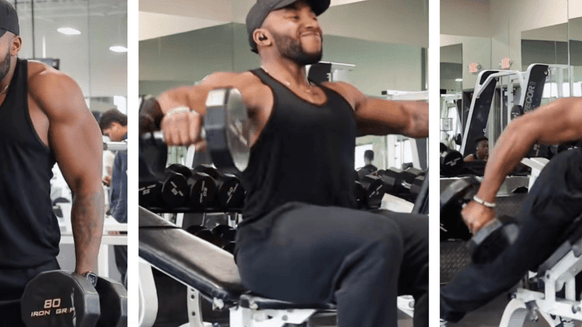Studies Show the Role of Community in Mental Health

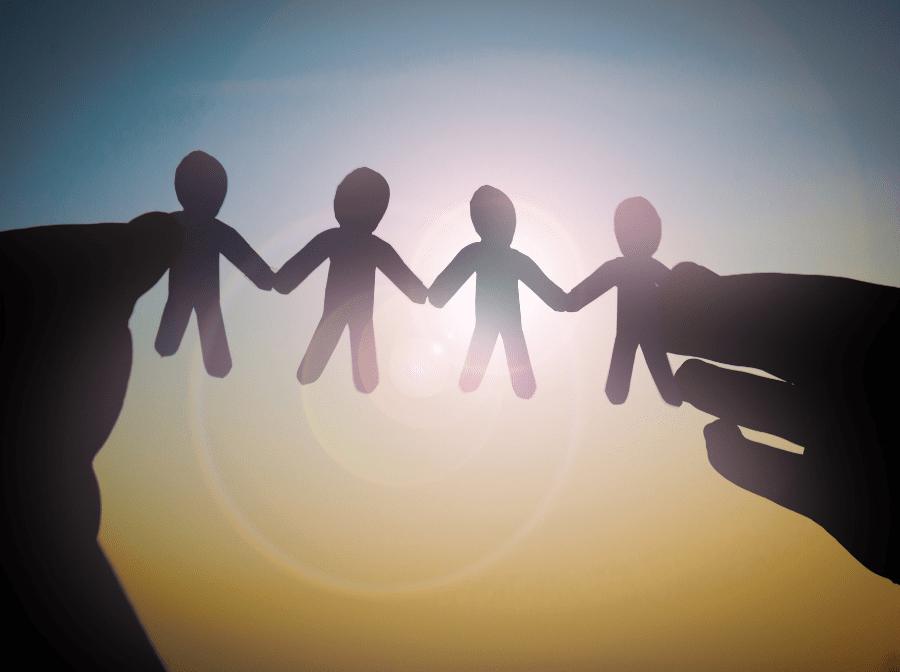
Research shows that one in five US adults lives with a mental health condition.1
There are many struggling every year, and thus, people try various methods to combat mental health issues. Some basic strategies include daily exercise, therapy, or journaling. But there’s one lesser-known factor that can play a huge role in mental well-being—community.
You may not realize it, but community can have a huge impact on how good you feel mentally. Let’s see how.
Being Part of a Collective:Blue Zones
As social beings, we all like to be a part of something—we have an inherent need to feel a sense of belonging.2
We feel our best when we know we’re not alone. Community provides this feeling of comfort and awareness that you’re part of a bigger picture, and this can improve your mental well-being.
This is something researchers have seen when studying Blue Zones—regions in the world where the population lives longer life spans than usual. There are many theories as to why residents of Blue Zones experience such long lives, but one thing attributed to their health and longevity is community.
In Sardinia, Italy, people 65 and up have lower levels of depressive symptoms, higher levels of self-perceived well-being, and better cognitive health.3
Researchers explain that a major reason for this is these residents’ active engagement in their community.
If you think about it, this makes perfect sense. Being a part of a community provides you with many benefits that would help your general well-being.
From community, you gain a network of people looking out for you, friends and others to socialize with, and you're part of a whole rather than having to fend for yourself. All of these things can help people feel more protected and thrive.

Blue Zones: Healthy Habits & Lifestyle Lessons For Longevity
What's the secret to living to 100?...
Combatting Loneliness & Isolation
Another influential aspect of community is that it reduces, or in some cases completely eliminates, loneliness.
Loneliness is a huge factor in mental well-being and is cited as a major health problem that can increase your levels of distress.2
Having a group of people who you can consistently see helps alleviate feelings of loneliness and isolation, which are a major part of mental health struggles.
With a community, you form relationships with other members and take part in activities. This allows you to build a social network and feel togetherness with other people.
When being an active member of a community, you know you are never truly alone. And this knowledge can provide a deep sense of comfort, helping combat loneliness.
Forming an Identity
Communities aren’t just important for socializing but can also help you discover who you are. In choosing a community, you are making a decision about which collective you would like to be a part of.
There are some communities you're born into, like your neighborhood community or different religious groups. But choosing to stay in these communities says something about who you are and what you value.
And if your native communities don’t resonate with you, you can go join other groups and find people who you connect with.
By connecting people with shared values, and facilitating bonding through those shared connections, communities can help you form a self-identity.
Additionally, communities are especially important for those who do not feel accepted or who are ashamed of their identities.
Having a group of people accept you for who you are and welcome you into a community can provide validation for your sense of self and the identity you’ve chosen.
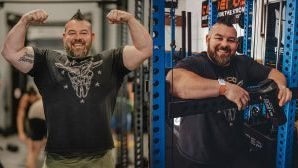
Strongman Rob Kearney On Being An Unapologetically Gay Athlete
'I want to leave a legacy.' ...
Community Resources
Communities can improve your well-being not just mentally but physically. This is because communities will often provide resources for those in need.
Whether it be raising funds for someone struggling with a medical condition or doing volunteer work, communities are all about helping each other out.
Having a network of people who can help you makes it easier to deal with life’s problems. This is especially true if you are going through an unexpected hardship like a loss or illness.
A good community will rally when you need them, and this provides not only the physical resources you need but also a sense of safety that will make you feel cared for and loved.
Having a group of people go out of their way to help you can also give you a sense of value—you’ll feel like you matter.
Life can be challenging at times—don’t underestimate the power of a social network.
Giving Back to Your Community
We just explained how having a community help you out in times of need can improve your physical and mental well-being, but the flip side of this is true too.
A study done in the UK in June 2020—in the midst of COVID-19—showed that coordinated community helping enhanced the psychological bonding of community members by building a sense of identity and unity during the pandemic.4
Community bonding also predicted better well-being and reduced negative emotions.
This means that providing help in your community, not just receiving it, can also improve your mental well-being.
When they say it feels good to give back, they really mean it.
Volunteering in community activities can make people feel good about themselves. Not only does helping out allow you to bond with other members, but providing help where it’s needed satiates something in human beings—we like to do good.
Helping those in need can also give you a sense of purpose and fulfillment in life.
Thus, the opportunities that communities provide to give back can help with your own personal well-being. While you are doing good for others, you’re feeling good about yourself.
The Modern-Day Community—Social Media
We’ve seen all of the benefits of physical, in-person communities, but did you know you can also experience improved well-being from joining a digital community?
While we all know social media can be detrimental to mental health, if used properly, it can foster bonding and healing among groups with shared experiences.
One study looked at how people with mental health conditions bonded through digital communities online.
These communities of patients and individuals with shared health conditions are known as peer-to-peer support.5
The study explains how those with medical issues are going to popular social media sites like Facebook, Twitter, and YouTube to connect to others going through the same struggles.
The results?
Those with mental health conditions who joined online communities showed greater social connectedness and feelings of group belonging by sharing personal stories and strategies for coping with the day-to-day challenges of living with a mental illness.5
Social media provides a way to connect to large numbers of people from all over the world who are going through the same things you are.
Like a physical community, this will help you feel understood and less alone in your struggles.
Online communities also provide a great way to share resources, collaborate, and create positive change.
Take Home Message
In today’s world, it’s easy to become disconnected and feel isolated, but you don’t have to go at it alone. Being part of a community can help you in ways you didn’t even know possible.
Remember, you can find community anywhere. Whether it be a religious community, your neighborhood, a sports team, or your local gym.
Find a community in any area of life and see how it enhances your happiness and mental well-being.
READ THESE NEXT:
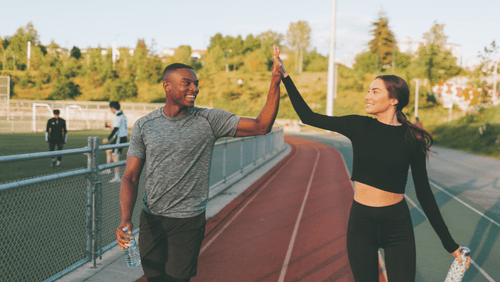
Study Shows Dopamine Boost During Exercise Can Help Your Brain Perform Better
See the latest research on how exercise can help your brain perform better....
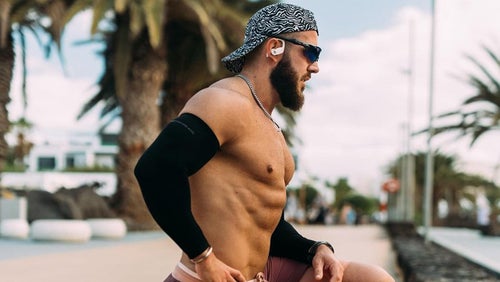
I Quit Drinking For 120 Days, Here's What Happened
“If alcohol isn’t serving you anymore... consider if there is another way.”...
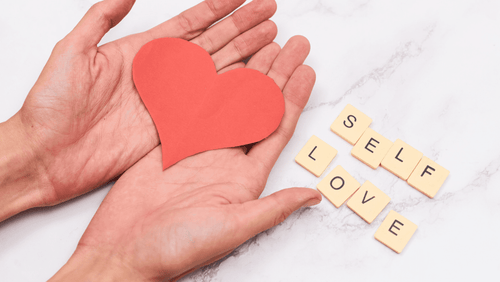
Study Shows Self-Compassion Can Help with Weight Loss
Being kind to yourself can go a long way....

A Rutgers University Honors graduate, Jamie grew up on the Jersey shore and double majored in Comparative Literature and Anthropology in college. Jamie is an experienced writer in the health and wellness, biotech, and eCommerce fields. She loves writing with a purpose and has even written for the Department of Justice.
Jamie became drawn to exercise during her time in university and began to notice the physical and mental benefits of moving your body daily. Today, Jamie enjoys Pilates, light weight training, and going on long walks in nature daily.
Jamie is also passionate about eating right and prioritizing gut health and immunity. She is always trying the next innovation in health and wellness. When she’s not writing articles, Jamie enjoys reading, playing guitar, and finding dogs to play with.
- Centers for Disease Control and Prevention. (2023, April 25). About mental health. Centers for Disease Control and Prevention.https://www.cdc.gov/mentalhealth/learn/index.htm#:~:text=More%20than%201%20in%205,a%20seriously%20debilitating%20mental%20illness.&text=About%201%20in%2025%20U.S.,bipolar%20disorder%2C%20or%20major%20depression.
- Beutel, M.E., Klein, E.M., Brähler, E. et al.Loneliness in the general population: prevalence, determinants and relations to mental health. BMC Psychiatry 17, 97 (2017). https://doi.org/10.1186/s12888-017-1262-x
- Paul KennethHitchcott, Maria Chiara Fastame & Maria Pietronilla Penna (2018) More to Blue Zones than long life: positive psychological characteristics, Health, Risk & Society, 20:3-4, 163-181, DOI: 1080/13698575.2018.1496233
- Bowe, M., Wakefield, J. R., Kellezi, B., Stevenson, C., McNamara, N., Jones, B. A., Sumich, A., & Heym, N. (2021). The mental health benefits of community helping during crisis: Coordinated helping, community identification and sense of unity during the covid‐19 pandemic. Journal of Community & Applied Social Psychology, 32(3), 521–535. https://doi.org/10.1002/casp.2520
- Naslund JA, Aschbrenner KA, Marsch LA, Bartels SJ. The future of mental health care: peer-to-peer support and social media. Epidemiology and Psychiatric Sciences. 2016;25(2):113-122. doi:10.1017/S2045796015001067
